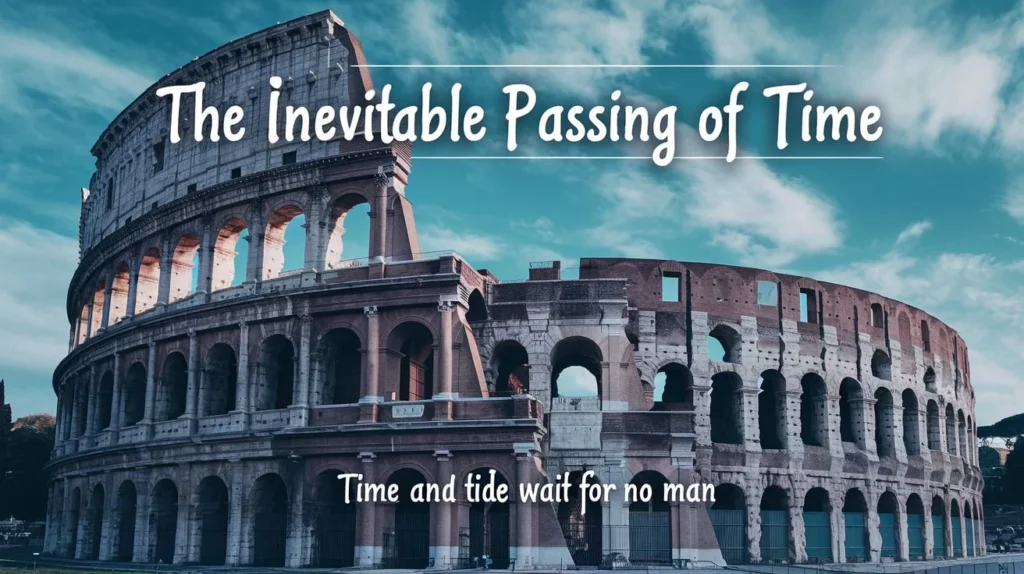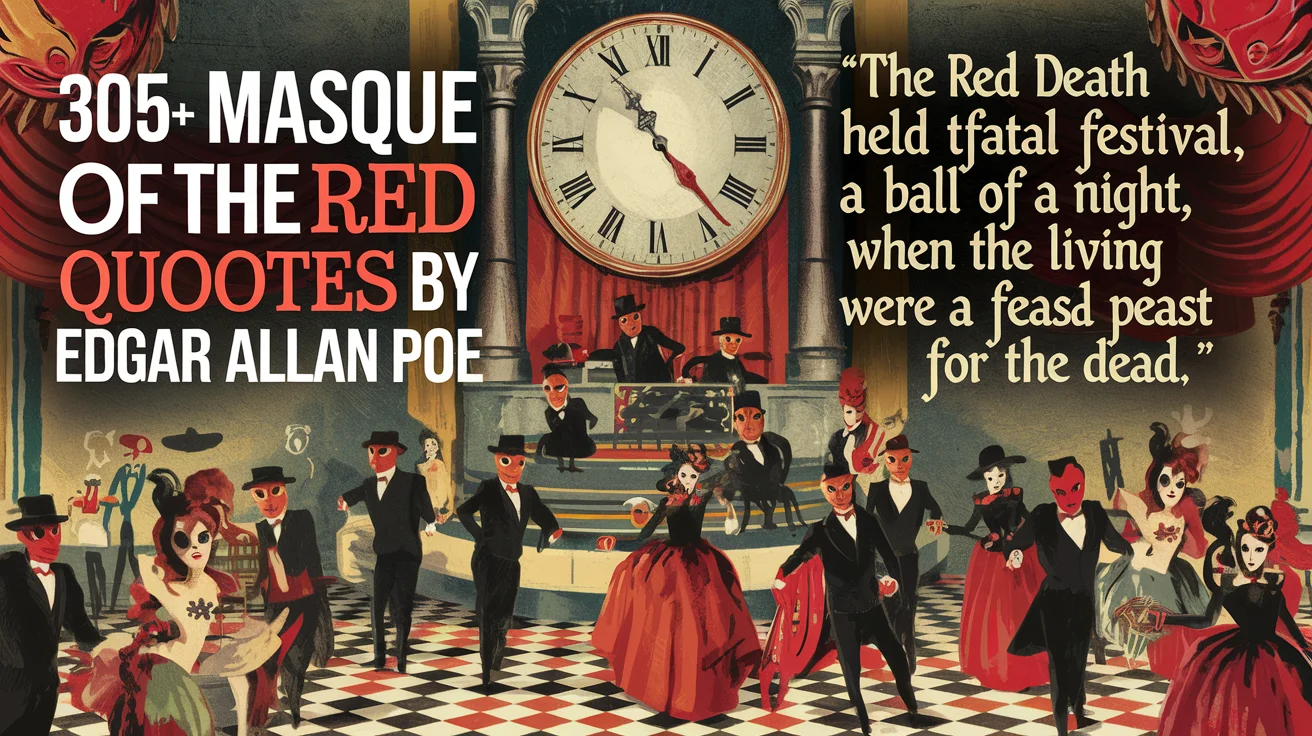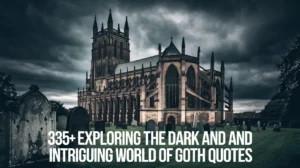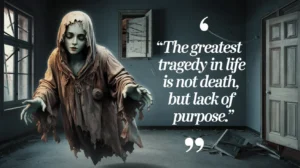Edgar Allan Poe’s “The Masque of the Red Death” is one of the most captivating works of Gothic fiction. Set in a world haunted by plague, death, and inevitable fate, the story unveils the terror and horror of human existence. Through his unique narrative style, Poe reveals deep insights into the human psyche and mortality.
The following collection highlights the best quotes from this timeless tale, offering readers a glimpse into the genius of Poe’s work.
The Masquerade and the Enigmatic Guests🎭
- “The external world could take care of itself. In the meantime, it was folly to grieve, or to think.”
- “The abbey was amply provisioned. With such precautions, the courtiers might bid defiance to contagion.”
- “But the Prince Prospero was happy and dauntless and sagacious.”
- “He had directed, in great part, the movable embellishments of the seven chambers, upon occasion of this great fête.”
- “The revel was at its height; and now there was an uneasy cessation of all things as before.”
- “There was much of the beautiful, much of the wanton, much of the bizarre, something of the terrible.”
- “The mask which concealed the visage was made so nearly to resemble the countenance of a stiffened corpse.”
- “It was in this apartment, also, that there stood against the western wall, a gigantic clock of ebony.”
- “He had come like a thief in the night.”
- “The figure was tall and gaunt, and shrouded from head to foot in the habiliments of the grave.”
- “But the figure of the Red Death had gone on and out before, the terror followed.”
- “And now was acknowledged the presence of the Red Death.”
- “They had come to the full majesty of midnight, and then the clock rang.”
- “The masque of the Red Death held illimitable dominion over all.”
- “There was a sound of muffled steps in the vast halls.”
- “The figure in its cloak of scarlet, the hue of the plague itself, stood unmoved.”
- “Even the boldest grew pale and trembled in the face of this uninvited guest.”
- “There was no pause in the proceedings of the masquerade until the final toll of the clock.”
- “The ebony clock went on at a measured, solemn pace.”
- “In the midst of the revelry, the clock’s deep tones rang out like a funeral knell.”
The Inevitable Passing of Time⏳

- “And the life of the ebony clock went out with that of the last of the gay.”
- “The striking of the ebony clock had a disconcerting effect, a heavy pulse upon the spirits of all.”
- “The clock stood, black, motionless, awaiting its moment to ring.”
- “But the music ceased as the clock rang, each time louder than the one before.”
- “Time itself seemed to stop with each chime.”
- “The hours went by and still the clock ruled over the hall.”
- “As the clock struck each hour, a hush fell, a reminder that time was not eternal.”
- “The revelers began to fear the approach of midnight, for with it came doom.”
- “The sound of the clock was like the stroke of fate, each one marking a step closer.”
- “Time passed, and with it, their fate approached, unseen, but inevitable.”
- “With each toll of the clock, the revelers were brought closer to their end.”
- “Each toll of the ebony clock grew heavier on the spirit of the room.”
- “At the stroke of twelve, the masquerade froze, each guest staring at the door.”
- “The clock’s final toll signaled the death of all joy, the end of all life.”
- “The hours sped by, as if driven by the unseen hand of destiny.”
- “Every minute ticked away, an echo of the fleeting nature of existence.”
- “Time, like a silent predator, moved ever closer.”
- “The clock reminded them all: time waits for no one.”
- “The ticking of the clock was like the beating of a heart, rhythmic, yet inescapable.”
- “With each chime, the fragile illusion of safety crumbled, leaving only fear.”
Symbolism of the Rooms and the Colors🕯️
- “Each room had a different color, symbolizing the stages of life.”
- “The last room, draped in black, stood as a symbol of death.”
- “The red windows cast an ominous glow, like the blood of life.”
- “The blue room was cool, calm, representing the start of life.”
- “The rooms moved from light to dark, from birth to the grave.”
- “The colors of the rooms blended into one another, like the transition of life itself.”
- “The seventh room, with its black drapery, stood separate, like death apart from life.”
- “In the red-lit chamber, all felt the weight of their inevitable demise.”
- “The green room seemed to pulse with life, yet it could not escape the shadow of the last room.”
- “The violet room, a mix of life and death, was like the twilight of existence.”
- “Each room reflected a different stage of the human journey, from innocence to finality.”
- “The rooms spiraled, leading inexorably toward the darkest truth of all.”
- “The progression through the rooms was like the march of time, inescapable and final.”
- “Each room held a different atmosphere, a reflection of life’s fleeting moments.”
- “The last room’s darkness was a stark reminder that death awaits us all.”
- “In each room, the revelers felt the pull of life, but in the last, they felt the weight of death.”
- “The arrangement of the rooms was symbolic of the progression of life into the unknown.”
- “The final room, with its red-tinted windows, symbolized the end of all things.”
- “The rooms were a twisted reflection of the human soul, moving from joy to despair.”
- “The last chamber stood in contrast to the others, reminding all of the ever-present shadow of death.”
The Red Death and Its Symbolism🔥
- “The Red Death had long devastated the country.”
- “No pestilence had ever been so fatal, or so hideous.”
- “The blood was its Avatar and its seal.”
- “The redness and the horror of blood.”
- “Sharp pains, and sudden dizziness, and then profuse bleeding at the pores, with dissolution.”
- “The scarlet stains upon the body and especially upon the face of the victim, were the pest ban.”
- “The Red Death stalked from room to room, its bloody marks left behind.”
- “The disease progressed swiftly, yet the terror it inspired was slower, more insidious.”
- “The Red Death moved like a phantom, unseen but ever-present.”
- “There were whispers of the disease, but no one dared speak its name aloud.”
- “The Red Death had claimed so many, yet the Prince believed he could escape its grasp.”
- “Every breath was a reminder of the lurking presence of the Red Death.”
- “The Red Death bore down upon the castle like a relentless storm.”
- “The plague was no respecter of persons—no prince or pauper could escape.”
- “The Red Death’s fury knew no bounds, sweeping through the land like wildfire.”
- “The plague was merciless, sparing none in its path.”
- “Blood was the signature of the disease, marking each victim with its crimson seal.”
- “In the wake of the Red Death, there was only despair.”
- “The Red Death brought silence, as if all life had been drained away.”
- “In its final moments, the Red Death revealed the futility of trying to cheat death.”
The Inevitable Fate of All💀
- “Death entered like a thief in the night, silent and unseen.”
- “All fall before the grim reaper; none can escape his touch.”
- “No matter how high the walls, death finds its way inside.”
- “Each one knew, deep down, that their fate was sealed.”
- “The revelers danced, but death watched from the shadows.”
- “The Prince believed he was safe, but death came for him all the same.”
- “Death was the great equalizer, reducing all to nothing.”
- “No wealth or power could stave off the approach of death.”
- “At the stroke of midnight, their fates were sealed.”
- “Death waited patiently, knowing that all must come to him in time.”
- “Their laughter could not drown out the inevitable approach of death.”
- “In the end, there was no escape from fate.”
- “Even the bravest among them could not face the truth of their mortality.”
- “The shadow of death loomed over them, growing darker with every passing hour.”
- “The masquerade was merely a distraction from the ever-present specter of death.”
- “Fate had written their end long before they set foot in the abbey.”
- “In their final moments, the guests realized that death had always been waiting.”
- “There was no fighting the hand of fate, for it was stronger than all their defenses.”
- “The masquerade was a dance of denial, but death could not be denied.”
- “The Prince had thought himself invincible, but death proved him wrong.”
The Artistry of Poe’s Language🎨

- “Poe’s words painted a vivid portrait of despair and dread.”
- “Each sentence was crafted with meticulous precision, like a work of art.”
- “Poe’s language was as dark and brooding as the themes he explored.”
- “The descriptions were haunting, each word carefully chosen to evoke fear.”
- “In every line, Poe wove a tapestry of gothic horror.”
- “The beauty of his language stood in stark contrast to the horror of his subject matter.”
- “Poe’s mastery of language allowed him to immerse readers in the world of the Red Death.”
- “His use of metaphor and symbolism gave the story its deep layers of meaning.”
- “The story was not just a tale of terror but a reflection on the human condition.”
- “Poe’s words dripped with melancholy and fear, like the blood of his victims.”
- “The story flowed like a dark river, pulling readers deeper into its depths.”
- “Each room in the story was described with an artist’s eye for detail.”
- “Poe used the setting to reflect the inner turmoil of the characters.”
- “His prose was filled with a sense of doom, a foreboding that permeated every sentence.”
- “The language was rich with imagery, every word a brushstroke in the painting of despair.”
- “Poe’s command of language allowed him to create an atmosphere of pure terror.”
- “The descriptions in the story were as detailed as they were disturbing.”
- “Poe’s storytelling was as intricate as the finest artwork.”
- “Through his words, Poe captured the essence of fear, giving it form and substance.”
- “The beauty of the story lay not only in its plot but in the elegance of its language.”
The Darkness Within the Story🖤
- “The story was steeped in darkness, both literal and figurative.”
- “The black drapery of the final room symbolized the utter despair of death.”
- “The dark themes of the story reflected Poe’s own struggles with mortality.”
- “The darkness in the story was a metaphor for the fear of the unknown.”
- “Every shadow in the story seemed alive, a reflection of the creeping fear in the hearts of the guests.”
- “The story explored the darkest corners of the human psyche.”
- “The darkness of the story was overwhelming, suffocating, much like the plague itself.”
- “Poe’s use of darkness created a chilling atmosphere that lingered long after the story ended.”
- “In the darkness, the characters found no safety, only doom.”
- “The story’s darkness was not just physical but emotional, a reflection of human vulnerability.”
- “Even in the brightest rooms, the shadow of death loomed, a constant threat.”
- “Poe used darkness to symbolize the inevitable end of all things.”
- “The guests tried to escape the darkness, but it followed them relentlessly.”
- “In the story, darkness was a living presence, always watching, always waiting.”
- “The dark rooms of the abbey were like the stages of grief, each one leading closer to the final void.”
- “Even the brightest moments in the story were tainted by the ever-present shadow.”
- “The darkness in the story was not just outside but within, a reflection of the characters’ fears.”
- “Poe’s use of light and dark created a powerful contrast, highlighting the inevitability of death.”
- “The darkness of the final room was a symbol of the ultimate truth: that no one can escape death.”
- “The story ended as it began, in darkness, leaving readers with a sense of profound unease.”
The Inevitable Passage of Time⏳
- “Time, that relentless force, moved on even in the face of death.”
- “The great ebony clock struck each hour, reminding the guests of their fleeting lives.”
- “Each chime of the clock was a reminder that time was slipping away.”
- “The hands of the clock moved ever forward, bringing them closer to their end.”
- “The passage of time was a constant presence, never stopping, never slowing.”
- “No matter how hard they tried, they could not escape the ticking of the clock.”
- “Time marched on, indifferent to their revelry or their fear.”
- “Each strike of the clock was like the heartbeat of death, growing louder with every passing moment.”
- “Time was the one thing they could not control, no matter how grand their masquerade.”
- “In the end, time was their true enemy, not the Red Death.”
- “The clock was a grim reminder that all things, no matter how beautiful, must come to an end.”
- “With each chime, the revelers grew more aware of the passage of time.”
- “Time seemed to mock them, moving forward even as they tried to ignore its presence.”
- “The great clock was a symbol of their mortality, ticking away their final hours.”
- “No amount of celebration could drown out the sound of time slipping through their fingers.”
- “The Prince believed he could outsmart death, but he could not outsmart time.”
- “The clock’s chimes echoed through the halls, a constant reminder of their impending doom.”
- “As the clock struck midnight, they knew that their time had run out.”
- “The passage of time was like a slow march toward the inevitable.”
- “In the end, time was the one thing they could not escape, no matter how hard they tried.”
The Castle as a False Refuge🏰
- “The Prince believed his castle was a fortress, impenetrable by the Red Death.”
- “The walls were high, the gates sealed, but death still found its way in.”
- “The abbey was supposed to be a sanctuary, yet it became their prison.”
- “They hid behind stone walls, believing they could outlast the plague.”
- “The castle’s grandeur could not protect them from the inevitable.”
- “No amount of wealth or luxury could shield them from death’s reach.”
- “The Prince’s castle was his final stand, a monument to his arrogance.”
- “The castle was a symbol of their denial, a futile attempt to escape the world outside.”
- “They danced and feasted within the castle, unaware that death had already entered.”
- “The castle’s many rooms represented their attempt to distance themselves from reality.”
- “Behind the castle walls, they believed themselves safe, but they were wrong.”
- “The grand fortress became a tomb for those who sought to cheat death.”
- “The castle was a refuge only in their minds; in truth, it offered no protection.”
- “The Prince’s belief in the castle’s power was his downfall, as he underestimated death’s reach.”
- “The walls of the castle could not keep death at bay; it was already within.”
- “The fortress was built to keep death out, but it only served to trap them inside.”
- “The rooms of the castle were like stages of their denial, each more elaborate than the last.”
- “They thought the castle’s grandeur would save them, but it only delayed the inevitable.”
- “The castle was a false refuge, a place where they believed they could escape the truth.”
- “In the end, the castle became a monument to their folly, as death claimed them all.”
Prince Prospero’s Hubris👑
- “Prince Prospero’s arrogance blinded him to the reality of death.”
- “He believed that his wealth and power could shield him from the plague.”
- “Prospero’s greatest sin was his pride, thinking himself above the fate of others.”
- “He gathered the nobles in his castle, thinking he could outlast the Red Death.”
- “Prospero’s lavish parties were a distraction from the inevitable.”
- “The Prince’s confidence in his own invulnerability was his undoing.”
- “Prospero thought he could outwit death, but death came for him all the same.”
- “His belief in his own superiority led him to make foolish decisions.”
- “Prospero’s arrogance was a reflection of humanity tendency to deny its own mortality.”
- “The Prince’s downfall was his refusal to acknowledge the power of the Red Death.”
- “His parties were filled with laughter, but Prospero could not laugh away his fate.”
- “The Prince’s attempt to escape the plague was an act of hubris.”
- “Prospero’s belief that he could control his destiny was shattered by the Red Death.”
- “His arrogance led him to ignore the suffering outside his castle walls.”
- “Prospero thought he could cheat death, but death was waiting for him inside.”
- “The Prince’s downfall was a reminder that no one, not even royalty, is immune to death.”
- “Prospero’s pride blinded him to the true danger that was lurking in the shadows.”
- “He believed that the Red Death could not touch him, but he was wrong.”
- “Prospero’s hubris was his greatest weakness, leading to his ultimate demise.”
- “In the end, it was Prospero’s own arrogance that invited death into his castle.”

Sam Billings is an avid collector and writer of timeless quotes, dedicated to sharing the wisdom and beauty found in the words of others. With a deep appreciation for how a single sentence can capture profound truths, has made it mission to curate quotes that inspire, motivate, and evoke reflection.












